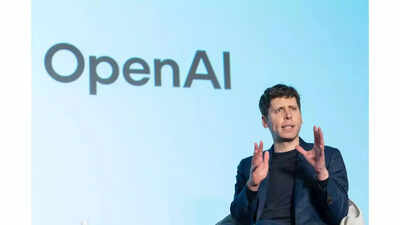Sam Altman is not pulling punches when it comes to the future of work. In accepting the high-profile Axel Springer Award, OpenAI CEO Altman made some open-eyed observations about the impact of artificial intelligence on work and the unmistakable message is thus: we should begin preparing now.
Altman foresees AI technology being capable ofautomating between 30 and 40 percent of the work activities of today. A large percentage of today’s workforce is going to look dramatically different–or be history for good–in the not-so-nearly futuristic future. But before anyone panics, Altman’s prediction isn’t completely macabre.
More astonishing than his predictions on the job market is Altman’s time clock on AI development. He says we are likely to see the emergence of superintelligent AI capabilities somewhere in 2030, a little over six years from today. We are not talking about smarter computers or better chatbots here.
Sam Altman on the Superintelligence Leap: Why ‘Learning to Learn’ is Humanity’s Key Skill
Altman envisages AI systems with the capacity to make scientific breakthroughs beyond what man can do, perhaps solving problems boggling scientists for decades.
This leap to superintelligence is a qualitative transformation in the thinking about AI. Existing systems are terrific, but they are still instruments requiring human guidance and oversight. AI of the future may be learning things we never would have conceived of on our own.

So what should humans do to prepare for this AI-driven world? Altman’s answer is awfully straightforward: acquire new skills, but first of all, become a master of learning. This “learning to learn” approach recognizes the world’s growing fluidity and understands that today’s applicable skills are maybe not going to be applicable tomorrow.
The days of apprenticing for a trade or skill and holding on to it for a lifetime are being made obsolete. Instead, workers will be compelled to be permanent students and to forever adapt and acquire new skills as an AI reshapes an industry.
This doesn’t involve each and every individual becoming a data scientist or a programmer. It’s a matter of having mental agility and curiosity to adjust when things do change. There will be employees who will do well and who will be capable of recognizing emerging opportunity and coming to have the ability to seize them quickly.
Sam Altman shares his Message on AI and the Future of Work
Despite forecasting the mass disruptions to come, Altman still expresses a confidence in regard to the ramifications of AI on society. Artificial intelligence for him runs in complete alignment with human values and far from being a source of danger, a force for good.
This optimism isn’t naive cheerleading, it’s based on OpenAI’s approach to AI development, which emphasizes safety and beneficial outcomes. The company has invested heavily in research aimed at ensuring AI systems behave in ways that benefit humanity rather than causing harm.
Altman’s plans go further than software enhancements. OpenAI is currently busy with newly developed hardware solutions intended to incorporate AI as an integral part of our everyday life. The idea is not to create a more powerful AI, but to create a more accessible and useful AI for everyday people.
This hardware emphasis may radically transform how we engage with computers and technology. Rather than conforming ourselves to employ sophisticated software, AI systems of the future may conform to us, recognizing our needs and preferences in a way that comes to us in a natural and intuitive way.
Altman’s message is ultimately one of preparation, not fear. Yes, there are large changes a-coming for the job market. Yes, AI’s going to automate many jobs today. But such changes also hold opportunity for those willing to grasp them.
The key is to start the preparations today. It might be taking online courses, experimenting with AI programs, or simply adopting a mindset of continuous learning, the workers who are going to start preparing today will be best positioned for the AI-enmeshed world of tomorrow.
Altman’s contemplated future isn’t inevitable, but it’s becoming credibly likely. The question isn’t whether AI will transform work—it’s whether we’ll be ready when it does.

